Signe Rätsep
Chief Specialist of the Legal Information and Judicial Training Department of the Supreme Court
Kristi Aule Parmas
Chief Specialist of the Legal Information and Judicial Training Department of the Supreme Court
Statistical information on the work of the Supreme Court is collected on the basis of procedural requests submitted to the Supreme Court and the matters they have reviewed. Information on reviewed matters and requests for proceedings is collected in three types of court proceedings: civil, administrative and offence proceedings. In constitutional review proceedings, information is collected only on the matters reviewed. In requests for proceedings, consideration is given to appeals in cassation, appeals against court rulings and applications for review as well as state legal aid applications and legal aid applications. Records of reviewed matters are kept according to the matters.[1]
Review of Requests for Proceedings in the Supreme Court Chambers
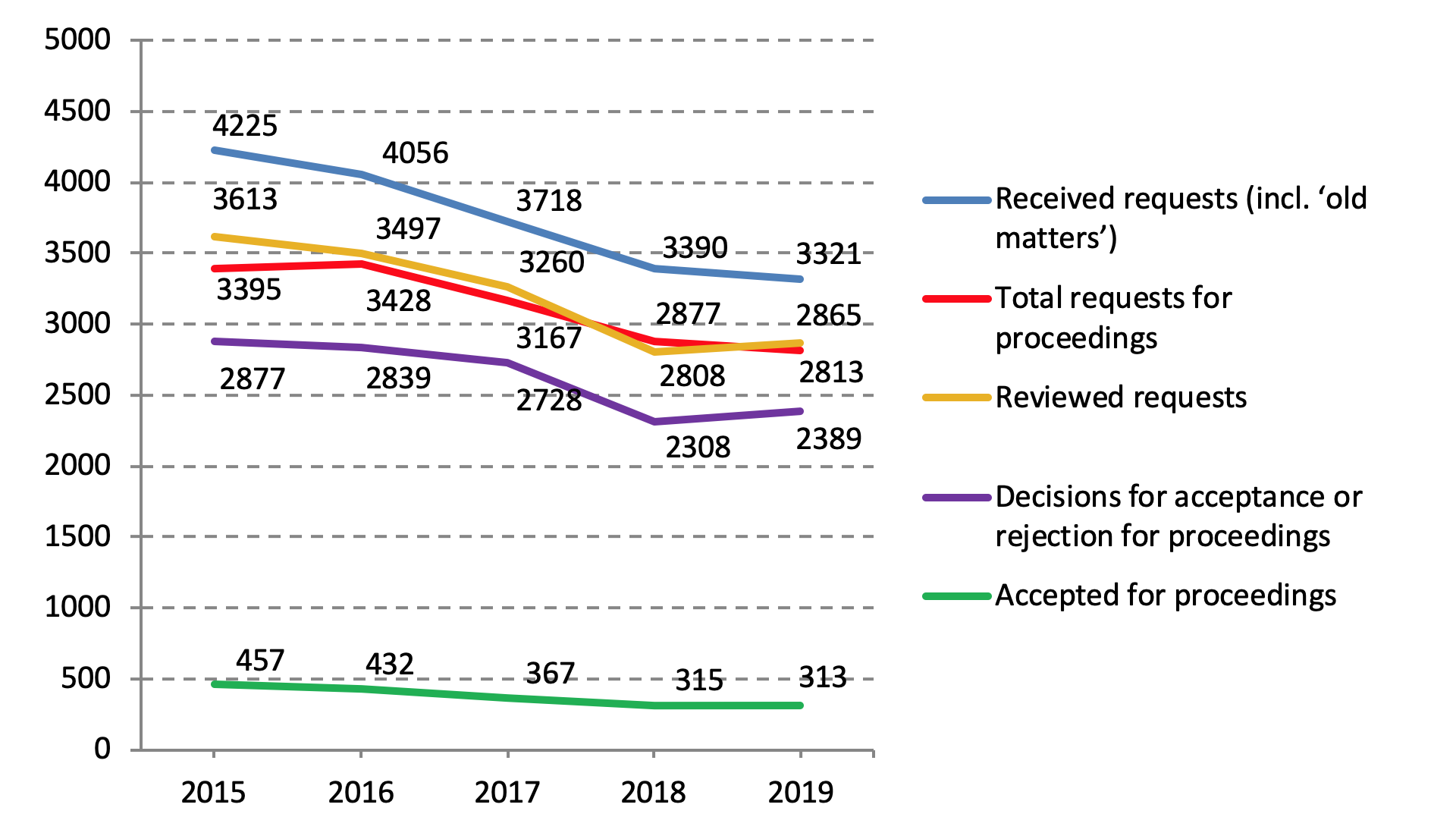
In 2019, 13% of the requests (313 out of 2,389) reviewed were processed. In comparison: In 2018, 14% of requests (315 out of 2,308) were processed, in 2017, 13% of requests (367 out of 2,728) were processed and in 2016, 15% of requests (432 out of 2,839) were processed. A year before that, this indicator was a percent higher, that is 16% (of 2,877 requests, 457 were processed). Therefore, during the years 2015-2019, the ratio of requests processed has fallen.
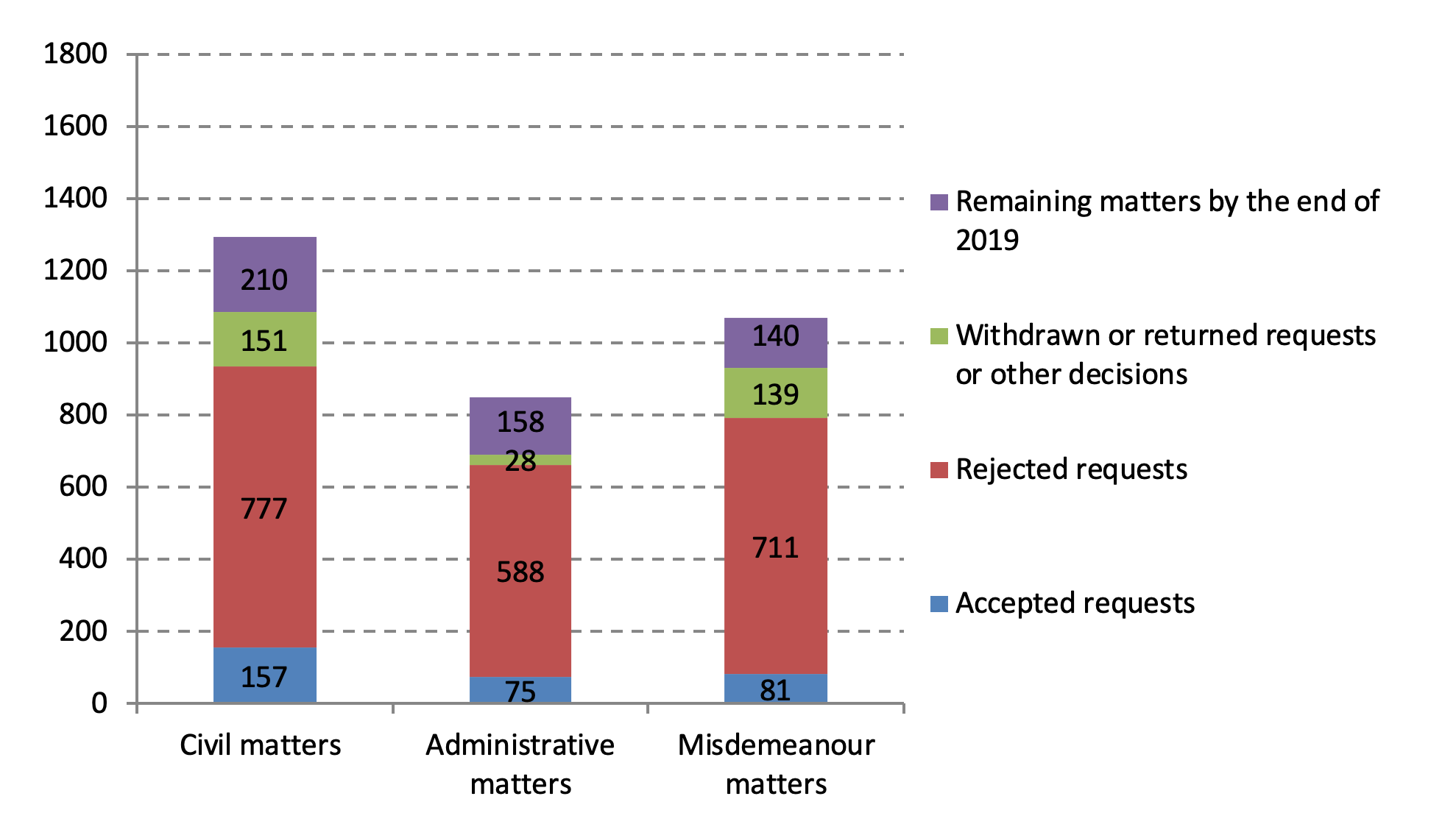
In the Civil Chamber, there were a total of 1,290 requests for proceedings (1,246 in 2018), of which 1,080 were filed in 2019. The Civil Chamber reviewed 1,100 requests (1,028 in 2018). They made decisions on acceptance or rejection for 934 matters (868 in 2018), of which 157 were accepted for processing (157 in 2018).
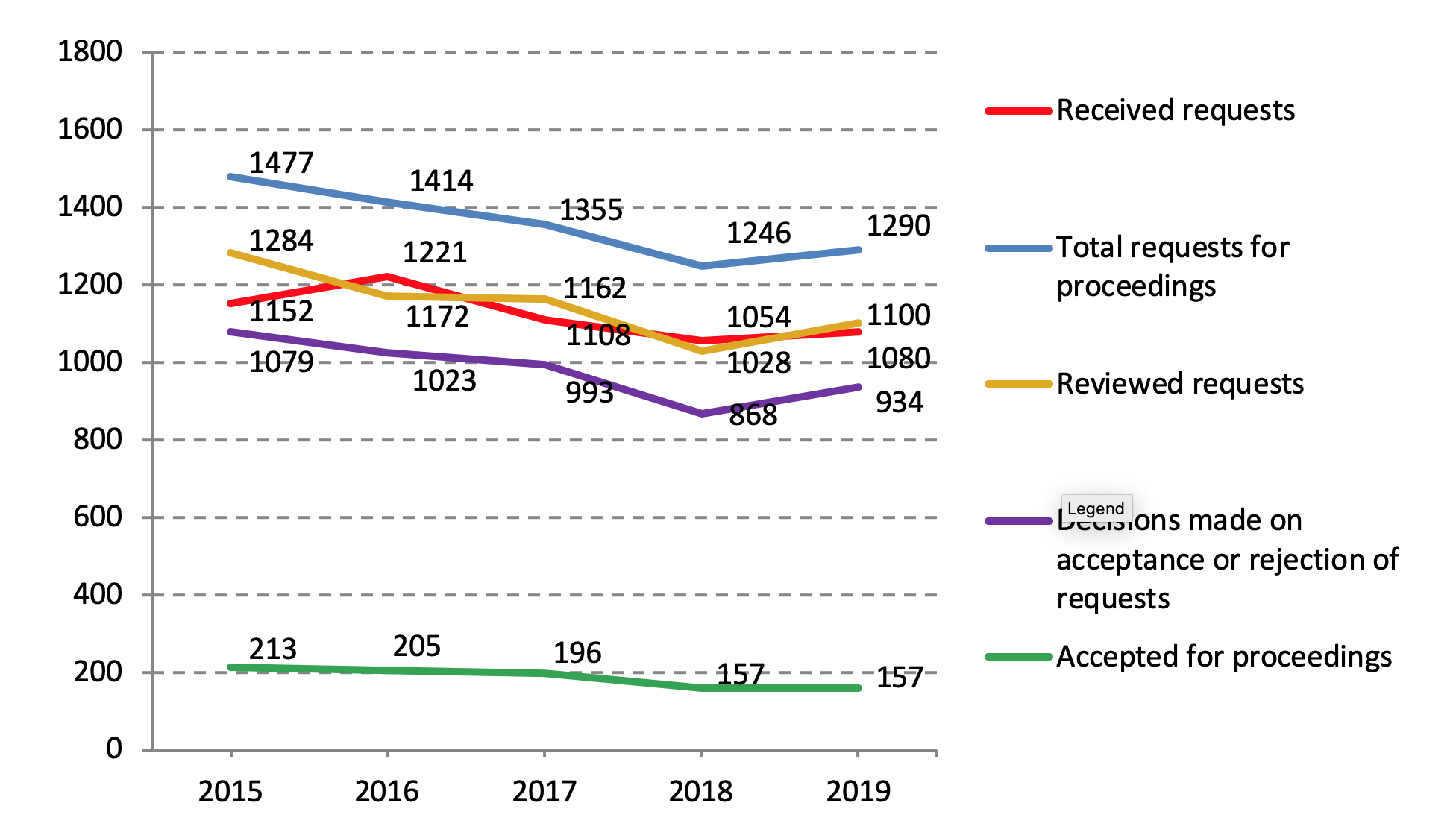
The Administrative Law Chamber had 809 requests for proceedings in 2019 (974 in 2018), of which 651 were filed in 2019. The Administrative Law Chamber reviewed 698 requests (804 in 2018) and made decisions on acceptance or rejection for 663 requests (747 in 2018). Of those, 75 were accepted for processing (93 in 2018).
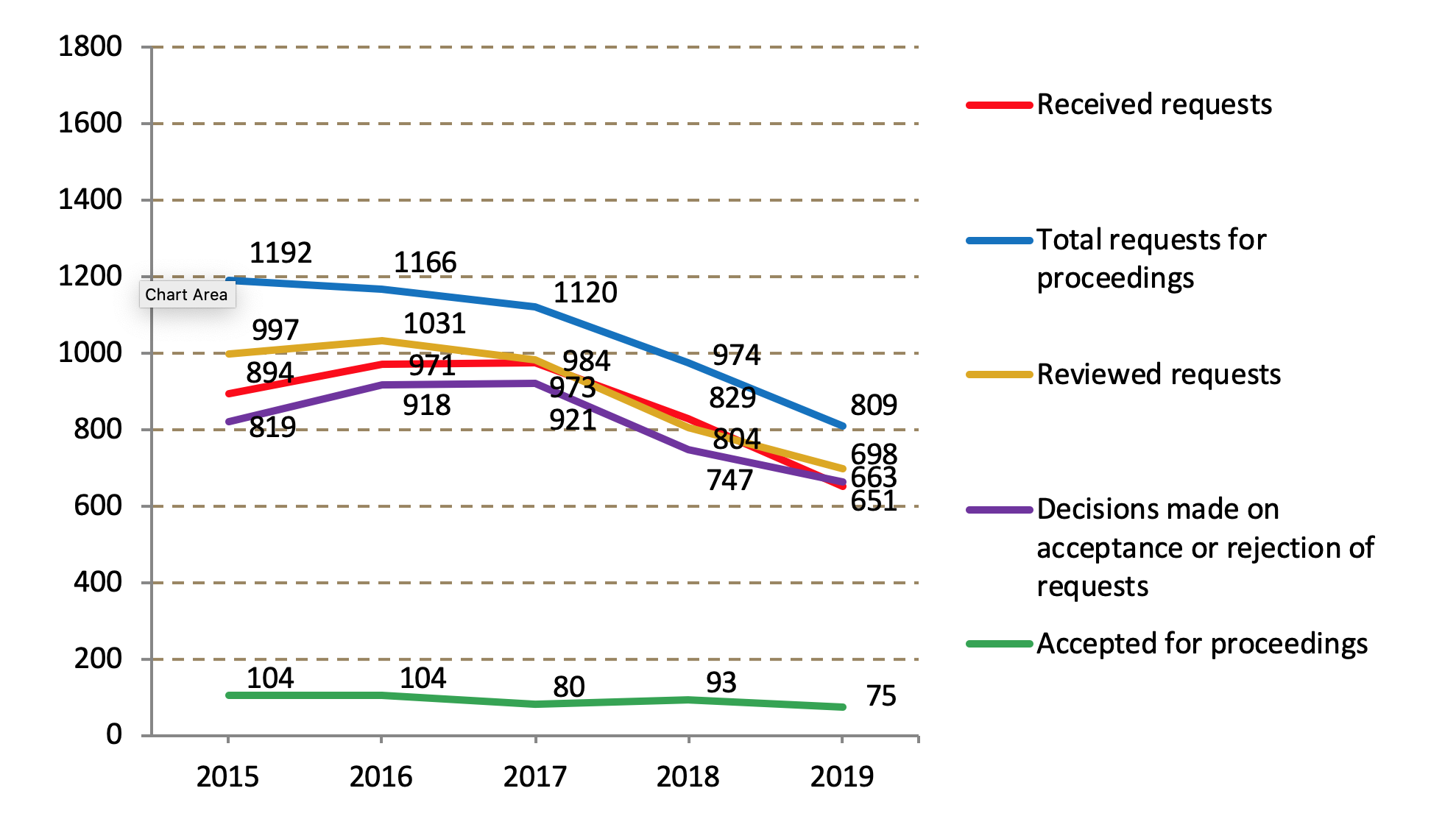
The Criminal Chamber received 1,222 requests for proceedings in 2019 (1,170 in 2018), of which 1,082 were filed in 2019. They reviewed 1,066 requests (976 in 2018) and made decisions on acceptance or rejection for 792 of them (693 in 2018). 81 requests were accepted for processing (65 in 2018).
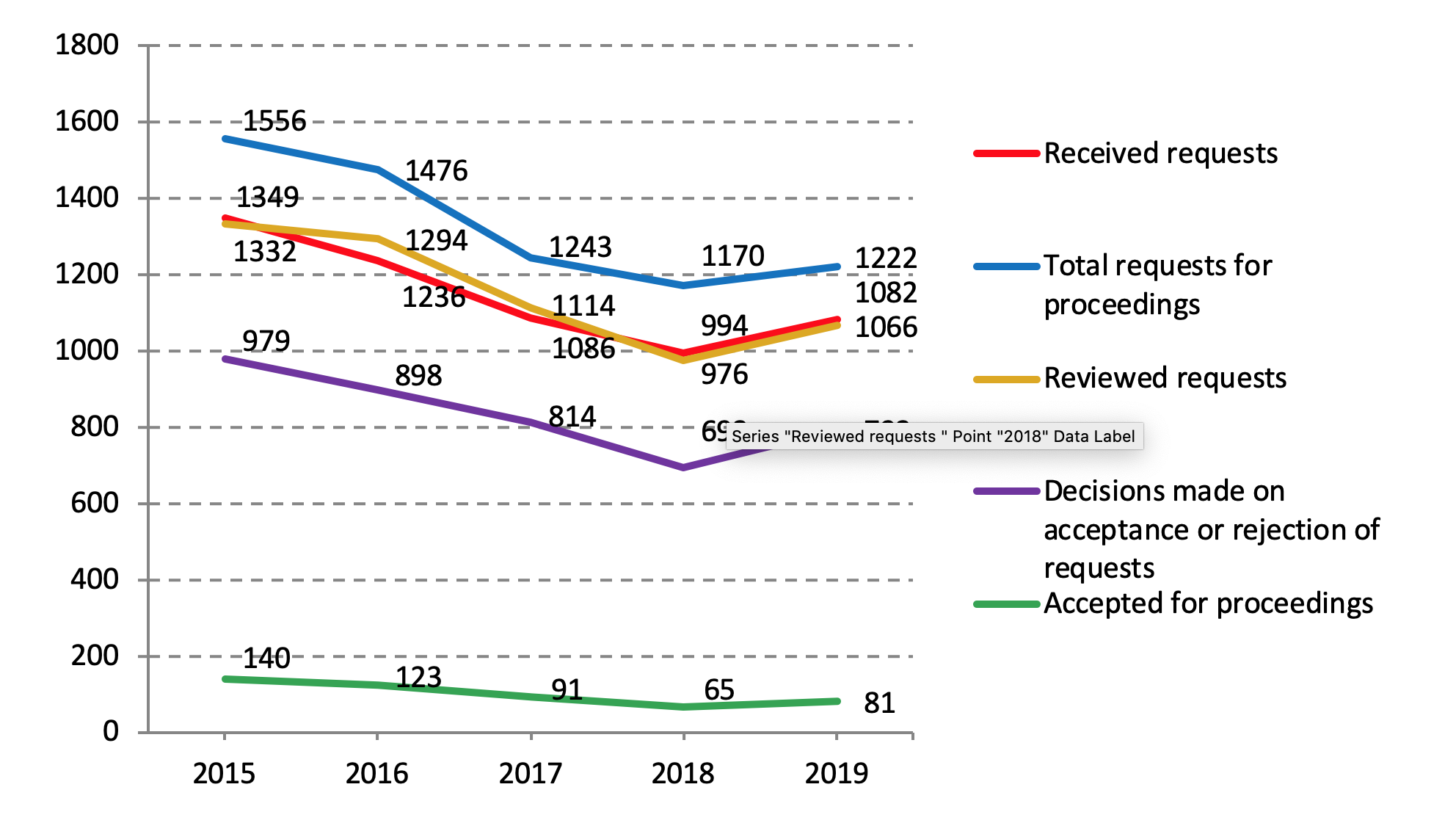
Results of Reviews of Matters in Supreme Court Chambers
Constitutional Review Proceedings
In constitutional review procedure, forty-five matters were reviewed by the Supreme Court in 2019. On two occasions, the constitutional review matter was resolved by the Supreme Court en banc. Table 1 below shows the results of these constitutional review matters in more detail. In the matters reviewed by the Constitutional Review Chamber and the Supreme Court en banc, disputed provisions of legal acts were declared unconstitutional and invalid in seven matters and one regulatory act not yet in force was declared unconstitutional. In one matter, an application to annul the decision of the National Electoral Committee was granted and the Committee was required to make a new decision on the matter. 28 requests were rejected and eight petitions were rejected without review.

Review of Matters in the Criminal, Administrative Law and Civil Chambers
The Criminal Chamber adjudicated a total of 66 offense matters, 54 of which were criminal and 12 of which were misdemeanour matters. In five criminal matters and one misdemeanour matter, the appealed court decision was upheld. Rulings made by lower level courts were annulled in 46 criminal matters and 11 misdemeanour matters. The reasoning for an appealed court ruling was amended in five instances.
The Civil Chamber adjudicated 141 matters in 2019. The Civil Chamber annulled 100 appealed rulings, left 27 unchanged and changed the reasoning for a ruling in 12 instances.
The Administrative Law Chamber adjudicated 82 administrative matters. The Administrative Law Chamber annulled 55 appealed ruling from lower courts. They upheld 12 rulings and changed the reasoning for rulings in 14 instances.

____________________________
[1] More detailed information on requests for proceedings and review of court matters in the Supreme Court since 1993 is available on the website of the Supreme Court: https://www.riigikohus.ee/et/riigikohus/riigikohtu-tegevust-iseloomustav-statistika.



